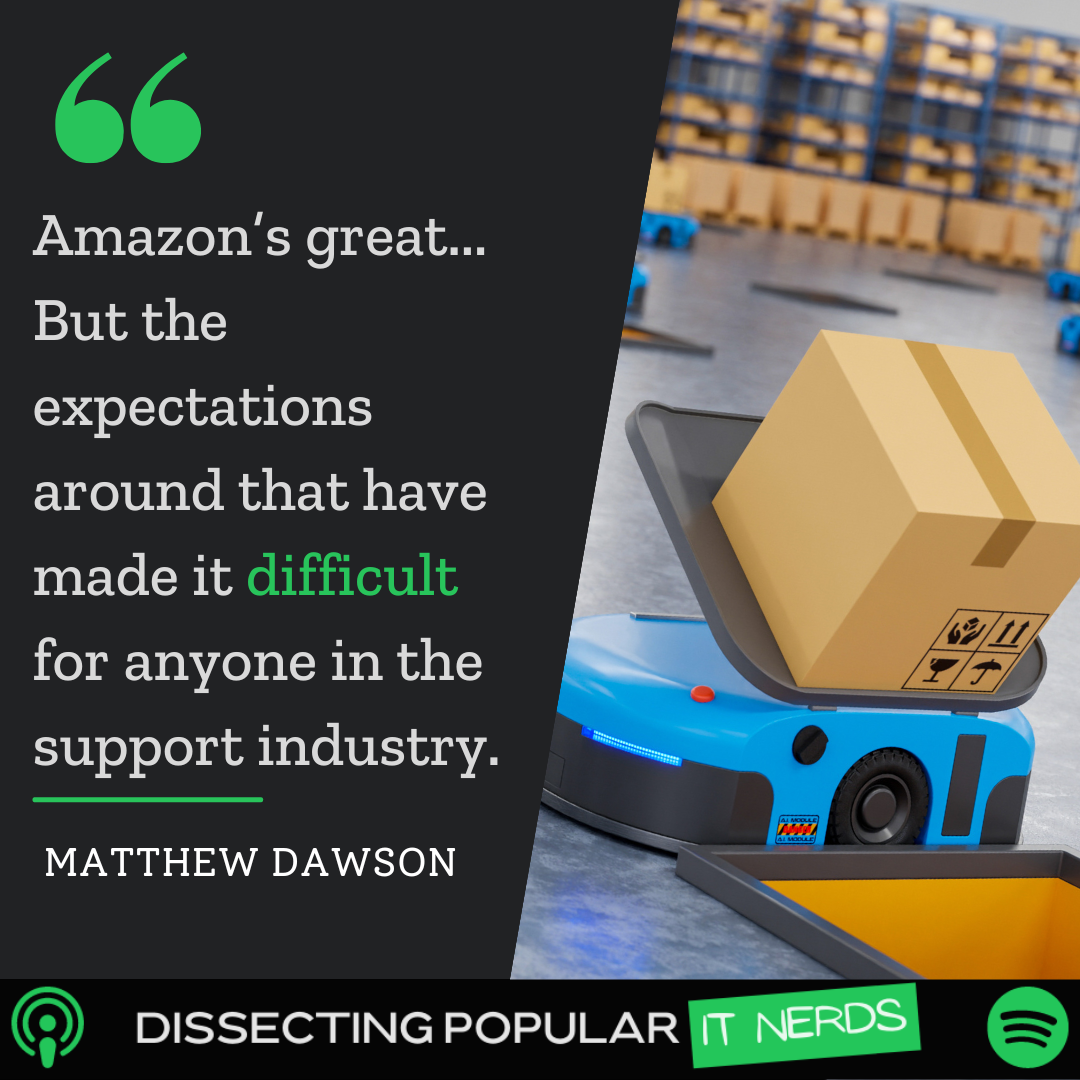[02:33] Have you had to deal with any corporate espionage?
TV is right sometimes. 90% of it is the end user. It’s always the guy who leaves his laptop on a plane or lends it to somebody. But other times, you do have people trying to access the system either remotely or by accessing the Wi-Fi.
[5:25] When you started in IT, it was a completely different world. What were you doing then?
It was way different. I went to school for mechanical engineering and landed a project for the government. Things that used to take all night can be done almost instantly now. I did programming for a number of years and got hired by an engineering firm to help them rewrite a facilities management program.
[11:00] A lot has changed. Tell me more.
I remember doing the IVR. It was three racks of servers that would process 96 lines and rotate them as people called. You would have to shut the lines down group by group to test and program them, usually after hours or in the middle of the night when there were less calls.
[18:53] Did you ever watch Halt and Catch Fire where they were doing inner ops with original PCs?
I remember they used to have the catalogs back in the day where you could buy computer parts and build your own computer. I found one looking through my old stuff and my son said “why wouldn’t you just go online?”
[22:53] I did notice some disaster recovery in your resume.
We did telecom and end user support, but at that time, I worked for a pretty big company with thousands of locations. I had a pretty big staff and a lot of smart people.
[24:48] What was your first cell phone? Or did you ever have a car phone?
I had the old car phone, and a Blackberry pager. Then my company bought me a Skytel 2-Way pager. I had that for a while—that was cool. And then I had the brick phone, the Motorola phone. The first cool phone I got was the Motorola Startac. The new phones remind me of those old flip phones back in the day.
[29:00] How quickly did you have to pivot during COVID?
Manufacturing had to change to shift work, and on the business side, we had to pivot pretty quickly. The CFO came in and asked how fast I could do it, and I said a couple of months. He said “I need it done in a couple of weeks.” We worked with a third-party vendor to virtualize everything and got everything up on the cloud. The biggest issue was finding laptops for people to use.
[37:12] What do you feel helped you become a leader within IT?
Understanding what the other people on the team are doing helps facilitate conversations. You have to remember they aren’t IT, so being able to translate IT concepts to other people is important.
[45:22] What’s your favorite video game?
I like Halo, and I hate to admit it. It’s just kind of cool, and it’s fun. In my mind, I’m wondering how much process is going on to generate the view.
[47:24] How’s your workload on a day-to-day basis?
There’s so much coming in. It’s the Amazon mentality at work—wanting things quickly all the time. It puts a heavier workload on the team. When someone comes to you for something, you have to set expectations and take them back from the ledge.
[56:08] What’s the trouble ticket that sticks in your mind? A case you still shake your head about.
It was way back in the early 2000s. A gentleman was working on his laptop, and the power went out in the whole building. He walked in with the glow of his laptop on his face, complaining how he couldn’t get to the network.
[59:57] Any other tricks you’ve learned over three decades?
I have to say the biggest thing in IT is when people call, they don’t call because they’re happy. It just doesn’t happen. When you walk through the steps, it makes those calls easier to deal with. Technology has changed so much; you’re jumping to different devices and it’s a lot to keep track of. Having a diverse, cross-trained team is key to problem solving efficiently.



